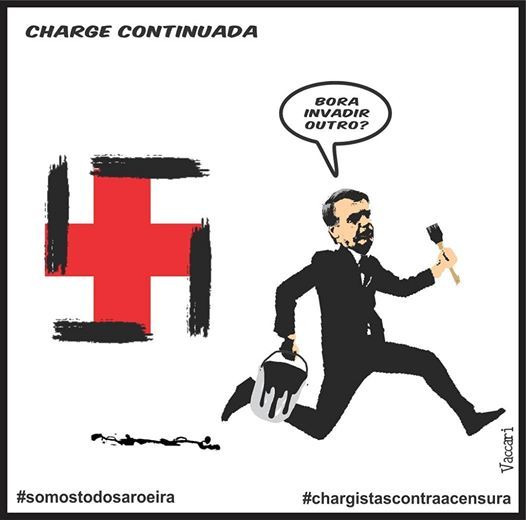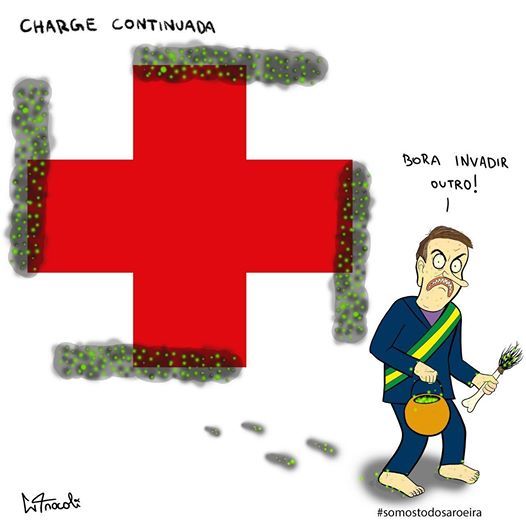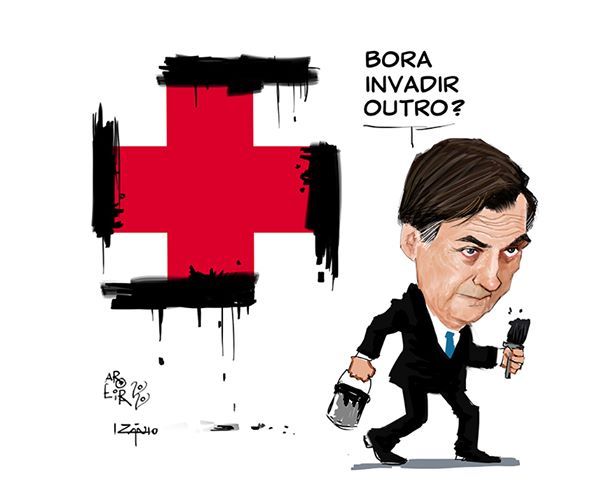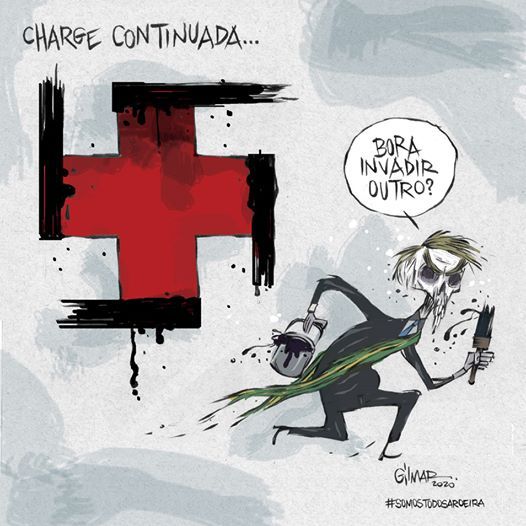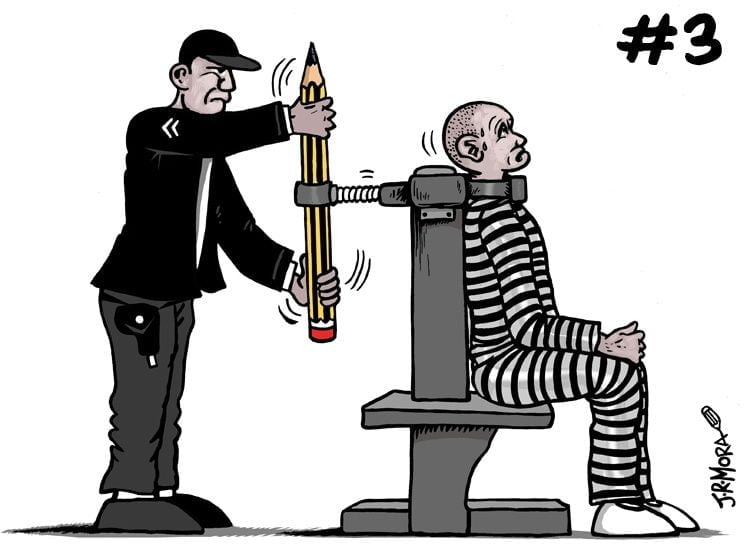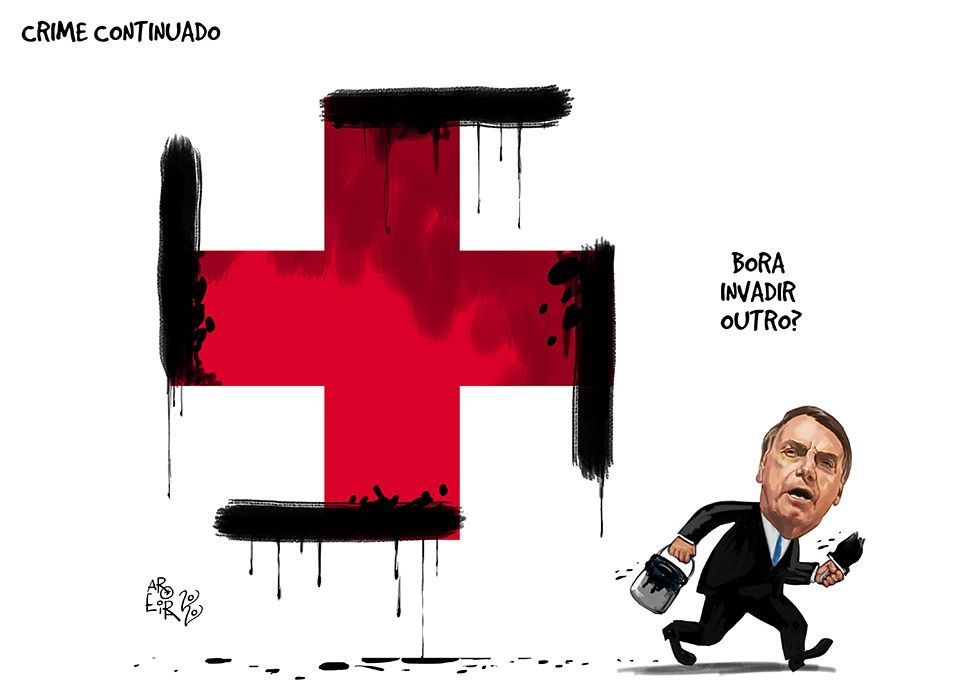
Cartoon by Renato Aroeira that mobilised Brazilian cartoonists against Bolsonaro
The Brazilian government is threatening to prosecute the cartoonist Renato Aroeira for this cartoon, and also the veteran journalist Ricardo Noblat for sharing it on his blog in the magazine "Veja". The government of the ultra-right-wing Jair Bolsonaro has called for an investigation, citing a law from the dictatorship, article 26 of the National Security Law, passed in 1983 under Joao Figueiredo, Brazil's last dictator.
According to this article, which covers the crimes of "slander" or "defamation" of the president of the Republic, the Senate, the Chamber of Deputies or the Federal Supreme Court, the cartoonist and the journalist would face a sentence of one to four years in prison.
Aroeira's cartoon entitled"Continuous crime" was published on 14 June in Brazil 247 and shows Jair Bolsonaro with a pot of paint and a paintbrush after transforming the symbol of the Red Cross by adding four black strokes that turn this universal icon of health into a swastika. The cartoon of Bolsonaro adds"Are we going to invade another one?
Aroiera was already in trouble with the Jewish Federation of Rio in April 2019 over another cartoon also featuring the swastika On that occasion Bolsonaro and Netanyahu formed it with their arms.
You don't want cartoons? Well, you're going to get sick of them
Different Brazilian journalists' organisations have criticised and rejected the government's response, but the reaction of Brazilian cartoonists in solidarity with Renato Aroeira under the call #SomosTodosAroeira (WeAreAllAroeira) has been the most forceful and overwhelming. A host of Brazilian cartoonists and some from other countries have published an avalanche of versions of Aroeria's cartoon and the collection continues to grow.
If Bolsonaro had a problem with Aroeira's image, get ready, because the cartoons are now being reproduced at top speed on the net when the situation becomes tense.
Here are just a few, but if you take a look around the internet you will discover many more.

Quinho Ravelli (Brazil)

Mario Alberto (Brazil)
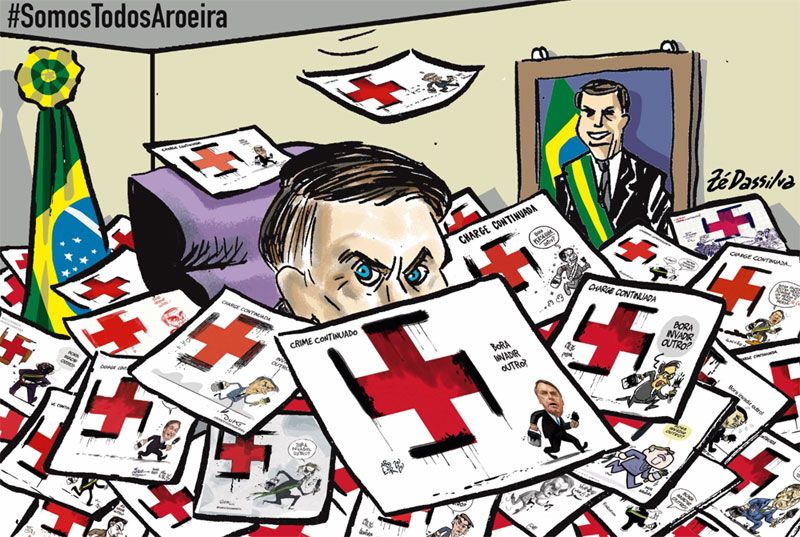
Zé Dassilva (Brazil)
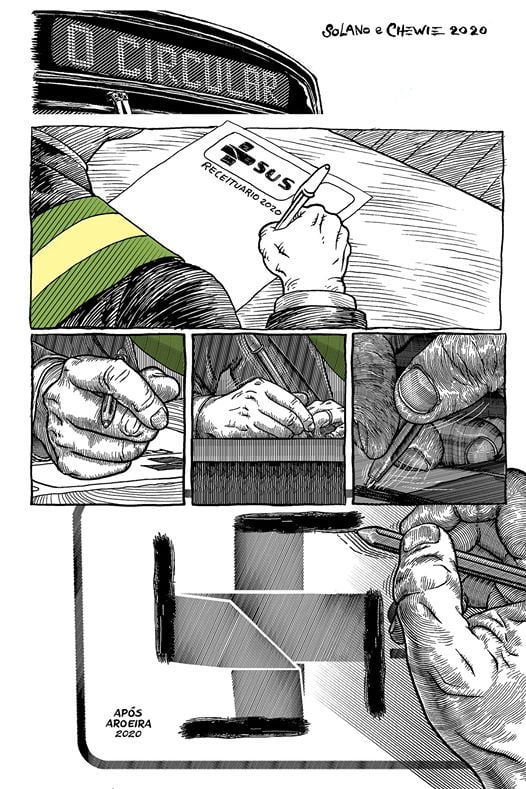
Solano e Chewie O Circular (Brazil)

Samuca Andrade (Brazil)
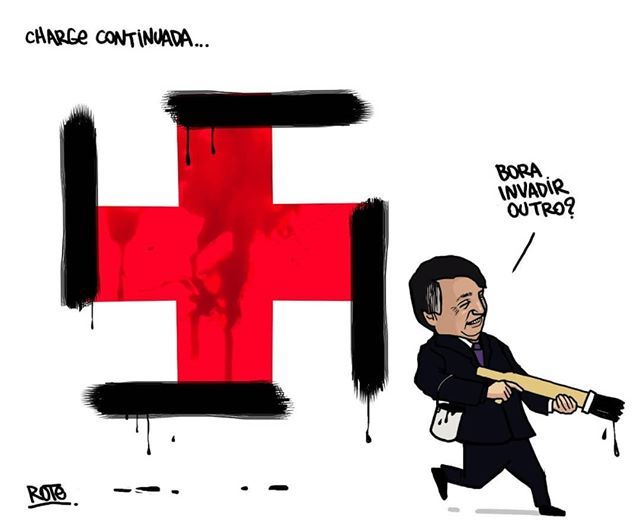
Rote (Brazil)
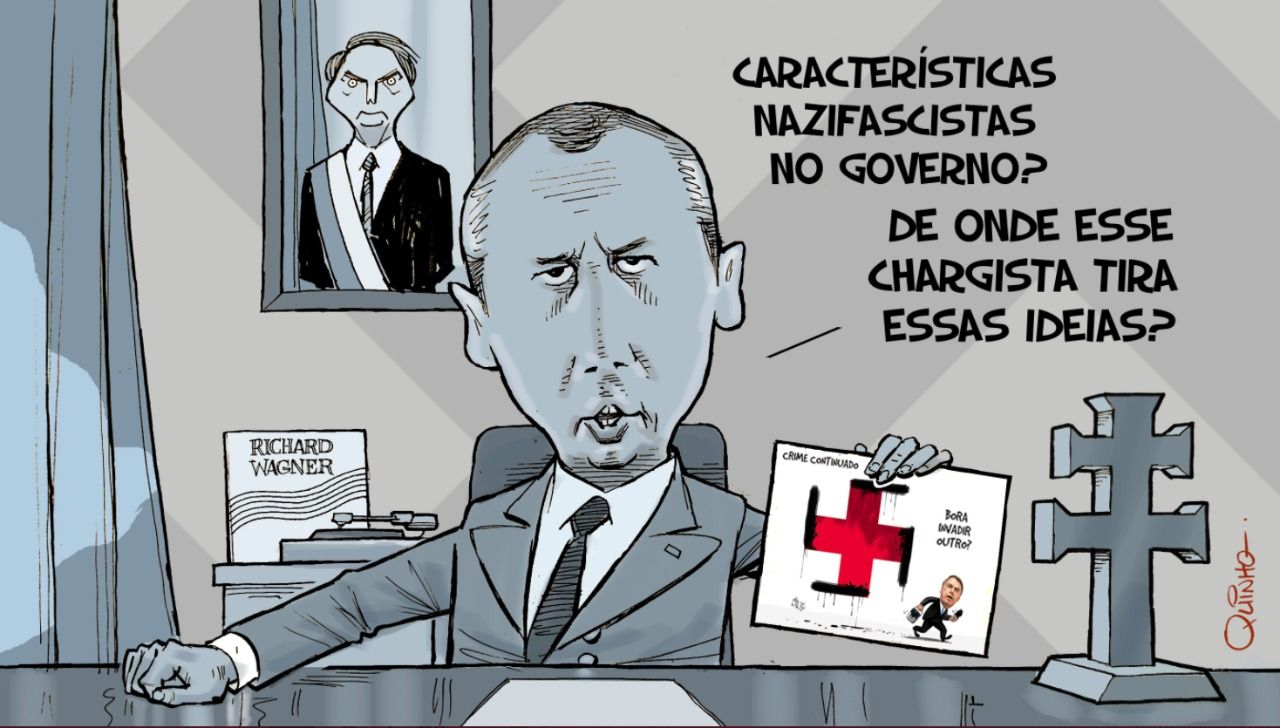
Quinho Ravelli (Brazil)

PX Molina (Nicaragua)

Paulo Thumé (Brazil)

Osmani Simanca (Brazil)
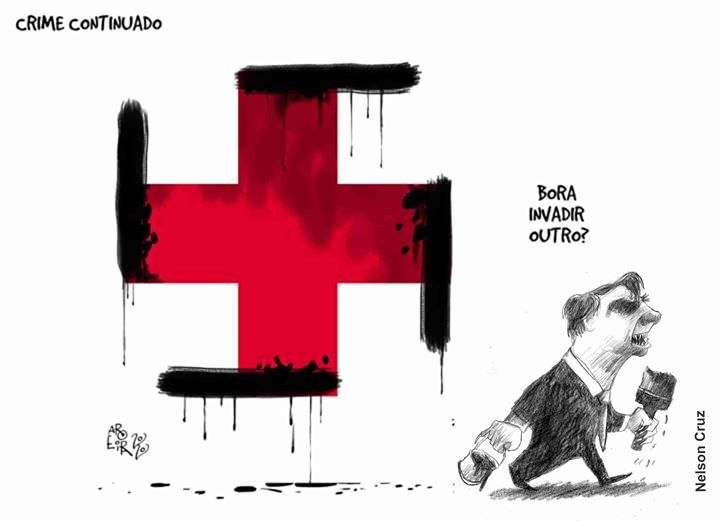
Nelson Cruz (Brazil)
Marcio Vaccari (Brazil)

Marcelo Magon (Brazil)

Luiz Carlos Fernandez (Brazil)

Leandro Bierhals (Brazil)
Lenadro A. Trocoli (Brazil)
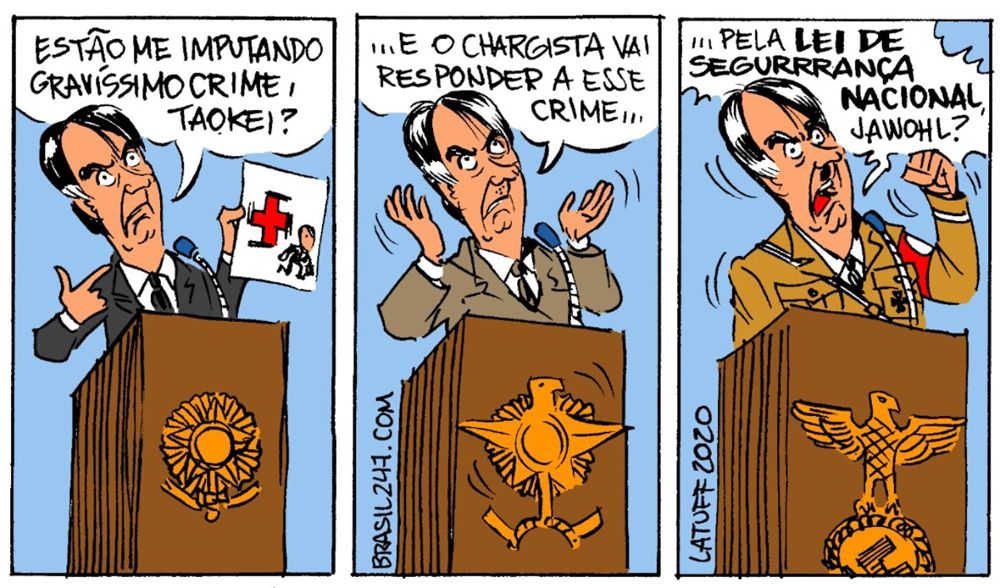
Carlos Latuff (Brazil)

Jorge Inácio (Brazil)

Jorge Braga (Brazil)

Joao Silveira (Brazil)

Joao Carlos Mattias (Brazil)

JBosco Azevedo (Brazil)
Izanio Facanha (Brazil)
Guto Respi (Brazil)
Gilmar (Brazil)

Gil Brito (Brazil)
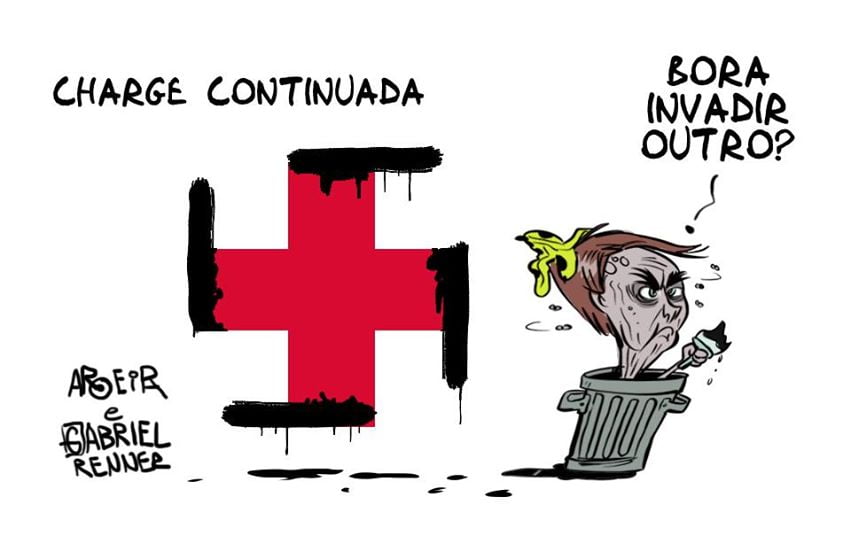
Gabriel Renner (Brazil)
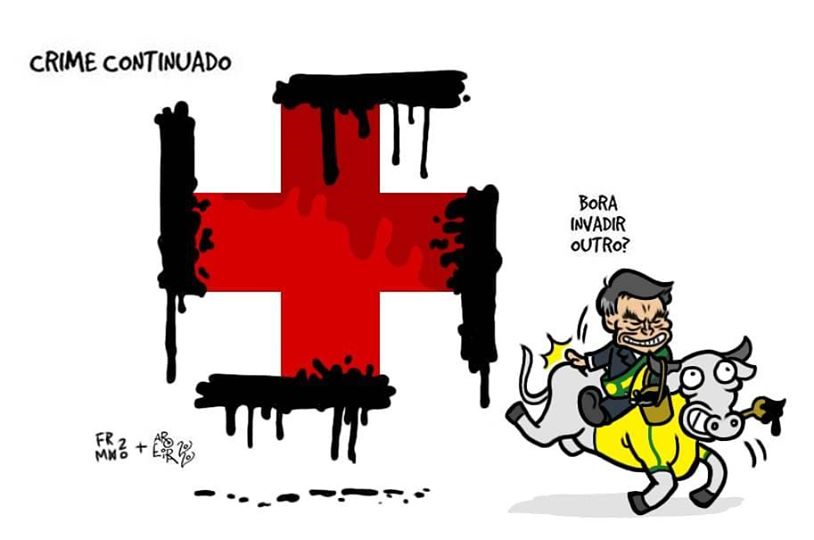
Fred Martins, Oficina do Ministro (Brazil)
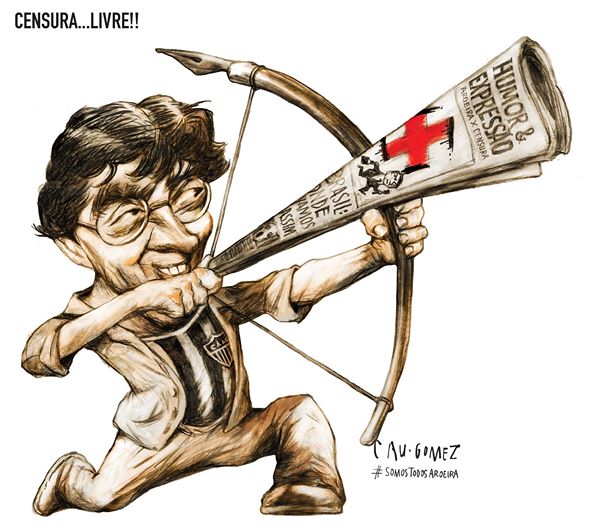
Cau Gomez (Brazil)

Eloar Guazzelli (Brazil)
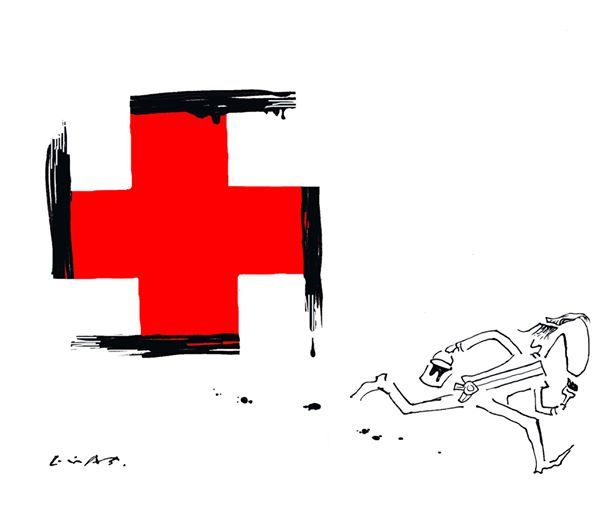
Elias Ramirez Monteiro (Brazil)
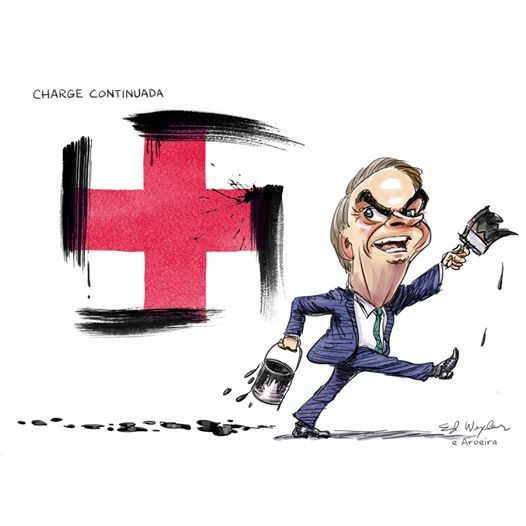
Ed Wexler (USA)
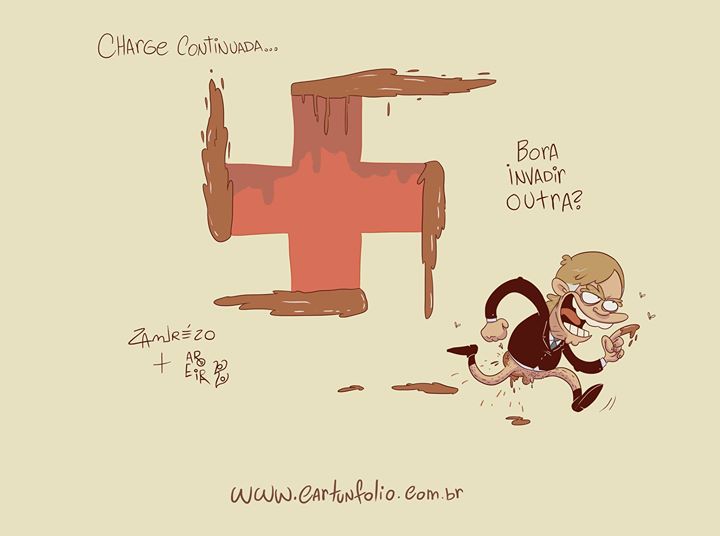
Zandré (Brazil)

Carlos Amorín (Brazil)

Bruno Ortiz Monllor (Brazil)
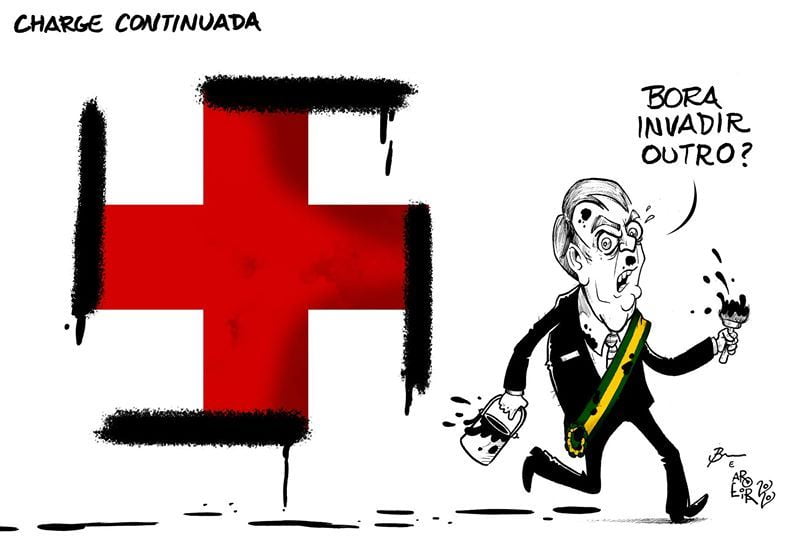
Brum (Brazil)
Boris Szuster Woloszyn (Brazil)
Biratan Porto (Brazil)
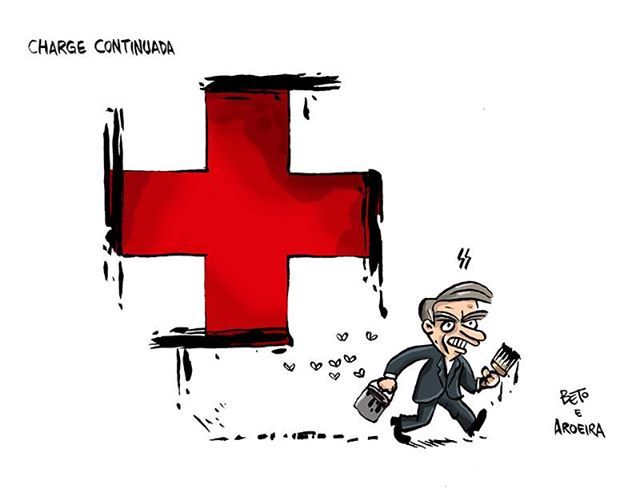
Beto (Brazil)

André Carrilho (Brazil)
Alejandro Becares (Brazil)

Adriano Dicart (Brazil)
Related, more than 150 cases in different countries.
Humour in trouble, a collection of cases (III)
Cases of cartoonists who have had problems of some importance because of their cartoons or satirical illustrations. There are also some stories of other people who, without being cartoonists, have got into trouble for sharing them.
